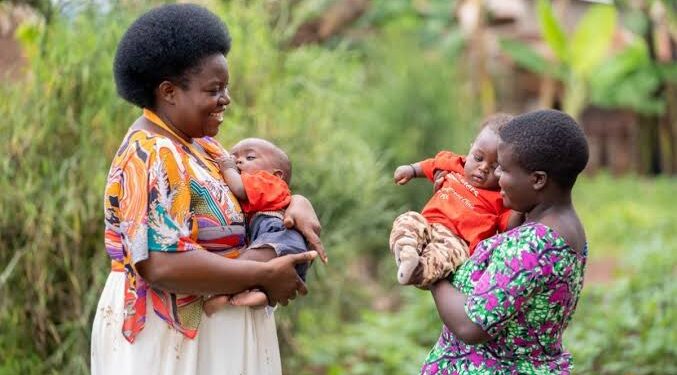By Emmanuel Nduka
Seven key changes made by Rwandan authorities in the revised law on maternity leave now provides robust support for mothers and their newborns, The New Times of Rwanda reports.
The seven most significant amendments incorporated into the updated maternity leave law, enacted on June 4 this year, amends the earlier 2016 legislation.
Below are the seven revised enactment:
1. Female employees entitled to 14 consecutive weeks of leave
Female employees who have recently given birth are now eligible for a total of 14 consecutive weeks of maternity leave, up from 12 weeks.
This period includes two weeks that can be taken before the anticipated delivery date, culminating in a total of 98 days off. This change represents an increase of two weeks.
These extra two weeks will be covered by the Social Security Administration (SSA).
“The primary objective here is to promote the health and well-being of both mothers and their newborns, by allowing additional time for recovery and bonding. It is also to enhance health outcomes of the parent which can lead to improved productivity when mothers return to the workplace,” noted Annet Kokundeka, the Manager of the Maternity Leave Benefits Scheme at Rwanda Social Security Board (RSSB).
During maternity leave, employers are responsible for paying the employee’s salary for the entire duration of 14 weeks which includes eight weeks covered by the Social Security Administration. The latter reimburses the employer for the benefits associated with eight weeks of paid maternity leave, while the employer covers the remaining six weeks.
2. Women on maternity leave no longer obliged to contribute for at least a month before leave
The amended law also exempts women going on maternity leave from contributing at least one month before they start their leave.
Previously, this was covered under Article 13 of the 2016 law. However, that article was removed in the new law, which now allows all women to benefit.
3. Maternity benefits in case of premature birth
In situations where a baby is born premature, the employer pays the mother a salary that corresponds to the duration remaining until the standard delivery period of nine months.
This includes half of the amount being covered and reimbursed to the employer by the Social Security Administration.
After completing this initial leave, the woman is entitled to maternity leave of 14 weeks and she receives maternity benefits.
4. In case of delivery complications
The new law states that in case of delivery complications “certified by an authorized medical doctor,” either for a woman or her newborn, such a woman is granted, by the Social Security Administration, maternity leave benefits for an additional period that does not exceed one month.
5. A woman who gives birth to a stillborn child after start of 20th week of pregnancy is paid eight weeks’ salary
If a woman gives birth to a stillborn after the start of the 20th week of pregnancy, the employer pays her a salary of eight weeks, including two weeks covered and reimbursed to the employer by the Social Security Administration.
6. What happens if a woman on maternity leave dies before the leave ends?
In the unfortunate scenario that a woman on maternity leave passes away before her maternity leave ends and the child survives, the Social Security Administration pays the father or legal guardian of the child maternity leave benefits that the woman would have benefited. This was also done to ensure the well-being of the newborn baby.
7. A woman whose child dies after birth has rights to maternity leave benefits
A woman whose child dies after birth has a right to maternity leave benefits, according to the new law.
An employer is conditioned to pay a woman on maternity leave a salary of 14 weeks, including the eight weeks covered by the Social Security Administration.
As noted, this was done to consider the mental and physical health of a mother and for better work results once she returns to work after losing her baby.
According to Kokundeka, the new law took effect on the date it was published in the official gazette, but its validity began on August 2, 2023.
“This will enable the employers who granted 14 weeks of maternity leave to women based on the ministerial decree of August 1, 2023, but were only reimbursed for 12 weeks by Rwanda Social Security Board, to be reimbursed for the additional two weeks,” she said.
The August 2023 ministerial decree was issued by the Ministry of Labour and Public Service.
The New Times




































